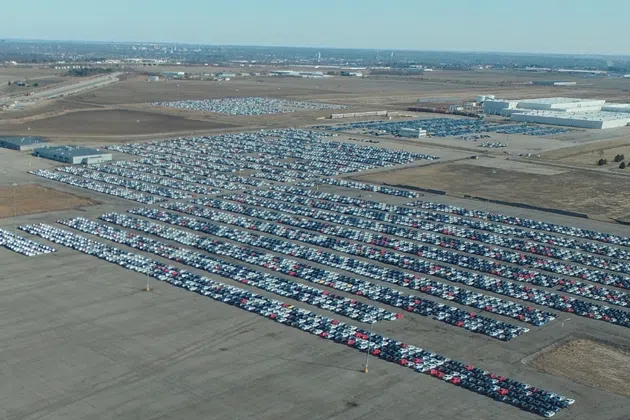
By Sam Wood
SPRINGFIELD – Gov. Bruce Rauner’s administration is preparing to split up a $109 million legal settlement related to the Volkswagen emissions scandal that saw the German auto manufacturer on the hook for billions of dollars in fines and settlements.
About $2.9 billion of that money was directed to Illinois and other states to help fight air pollution. But public health and environmental groups in Illinois are expressing frustration with the Illinois EPA after a draft spending plan shows some of the money earmarked towards reducing off-road transit emissions rather than focusing on traditional on-road vehicle pollution.
One group claims stakeholders were left out of the conversation entirely.
“Most residents across Illinois haven’t known about [the settlement] and haven’t been able to participate in making their views known to the EPA,” said Susan Mudd, a Senior Policy Advocate at the Environmental Law & Policy Center in Chicago.
PODCAST: Listen to Susan Mudd live on WJBC
https://soundcloud.com/user-493024408/susan-mudd-environmental-law-policy-center-04-04-18
Mudd said that differs from the protocol of the state’s Midwestern neighbors.
“Other states have had a much more inclusive process of actually reaching out to the public and telling citizens across their state that there is this money, that it’s out there, and [asking] what their citizens want it to be used for.”
According to the state EPA draft, two-thirds of the settlement money – or about $70 million – would be used to reduce emissions in off-road vehicles.
While Mudd conceded that off-road vehicles like trains and boats are noted polluters, she said people don’t have as much exposure to them compared to their on-road counterparts.
“They’re proposing to spend less money on the on-road vehicles like trucks, busses, transit busses and school busses that more people are exposed to on a daily basis.”
She’s also disappointed in the amount of money that would be directed to electric vehicle infrastructure, like charging stations.
“That’s important because people across Illinois are interested in using electric vehicles….but without charging stations that’s not going to happen,”
But the draft is not all bad news from Mudd’s point of view.
She did express some optimism towards a component of the spending plan that directs nearly $11 million toward electric school bus initiatives.
“The reason that’s so important is because our children are most vulnerable to air pollution,” Mudd added.
The state agency is soliciting public comment on the issue until April 20.
Sam Wood can be reached at Sam.Wood@Cumulus.com




